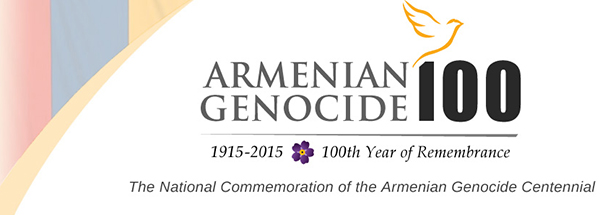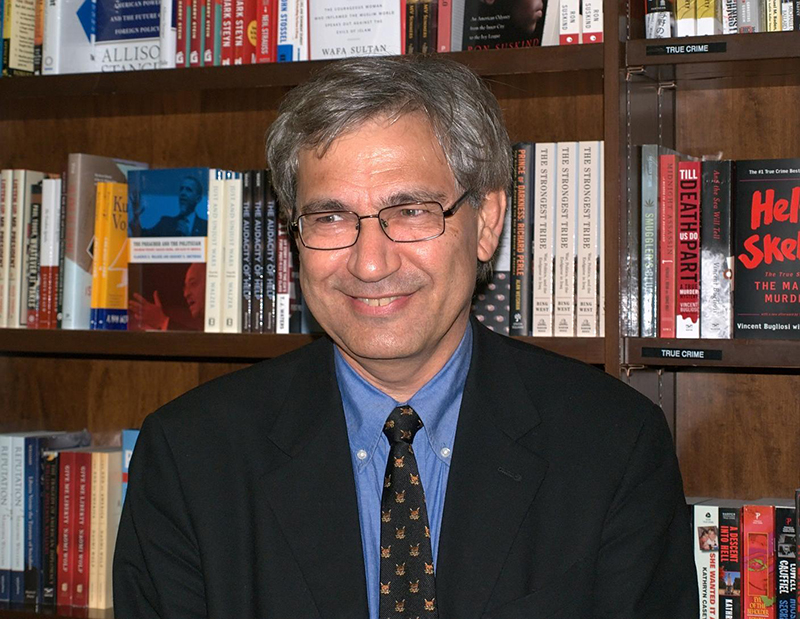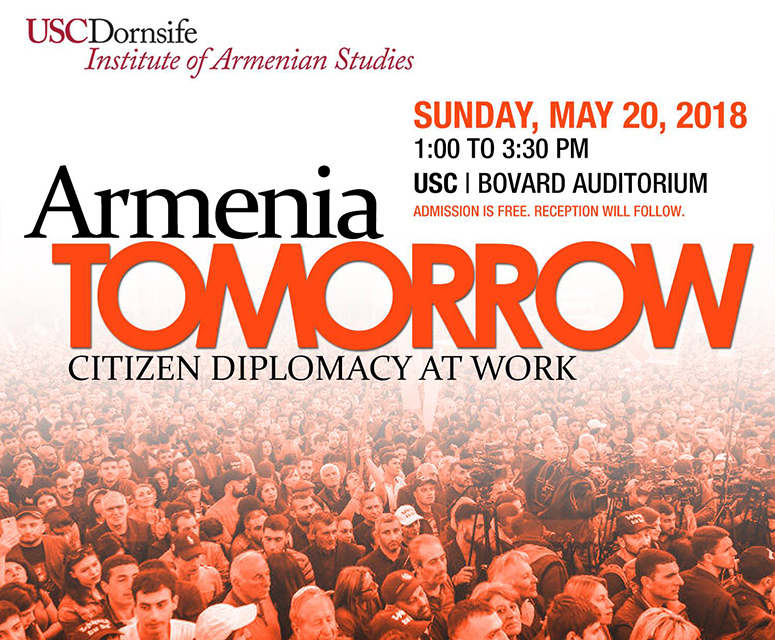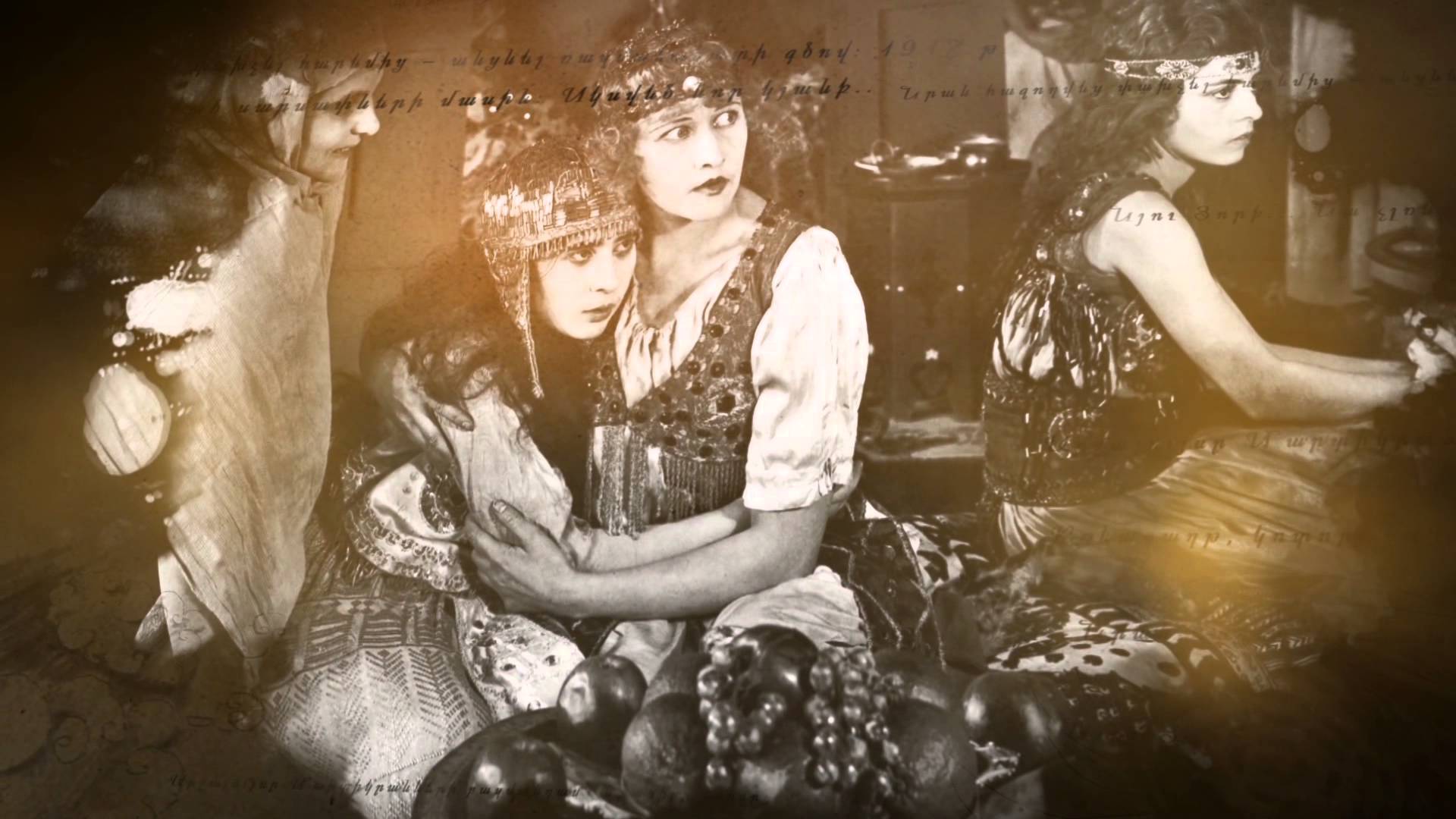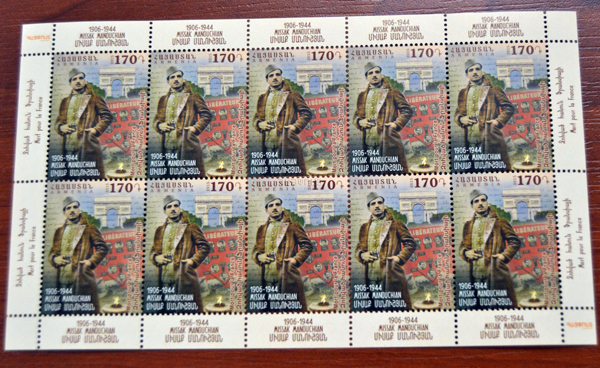By Taleen Babayan
Major scholars from around the world will participate in a timely, and thought-provoking conference at Columbia University, “Monuments and Memory: Material Culture and the Aftermath of Histories of Mass Violence” on Friday, February 20, 2015.
This all-day symposium concentrating on material culture and memory, with the ruins of the ancient Armenian city of Ani as the centerpiece, is organized and hosted by Peter Balakian, Donald M. Constance H. Rebar Professor of the Humanities at Colgate University, and Rachel Goshgarian, Assistant Professor of History at Lafayette College, and sponsored by the Armenian Center of Columbia University, Columbia’s Institute for the Study of Human Rights, the Institute for Comparative Literature and Society, and the Armenian General Benevolent Union.
The conference will explore the general themes of restoration, restitution and social justice and will be groundbreaking in its comparative analysis of Jewish monuments in Eastern Europe, Muslim monuments in the Balkans, and Armenian-Christian monuments in Turkey.
Four sessions revolving around these topics will take place throughout the day, each chaired by a member of the Columbia community who will conduct and moderate the question and answer sessions.
The first session, “Monuments and Memory: the Significance of Material Culture in the Aftermath of Genocide,” (10:00 a.m. to 11:15 a.m.), chaired by Christine Philliou, Associate Professor of History at Columbia University, will address the historical contexts for the destroyed or appropriated material cultures of minority peoples in the aftermath of histories of mass violence. The current conditions of these monuments will be analyzed, as well as their roles in collective memory for both occupying and exiled cultures. Presenters include Peter Balakian; Andrew Herscher, Associate Professor of Architecture at the University of Michigan, Ann Arbor; and Marianne Hirsch, William Peterfield Trent Professor of English and Comparative Literature at Columbia University.
The second session, “The Medieval Armenian City of Ani: A Case Study in the Politicization of Art History, History, Historical Monuments and Preservation in a Post-Genocidal Context,” (11:30 a.m. to 12:45 p.m.), chaired by Nanor Kebranian, Assistant Professor in the Department of Middle Eastern, South Asian, and African Studies at Columbia University, will include papers on subjects related to Ani’s multicultural past, cultural destruction, restoration projects, depiction in modern Turkey, and place in the construction of Armenian identity. Presenters include Rachel Goshgarian; Christina Maranci, Arthur H. Dadian and Ara Oztemel Associate Professor of Armenian Art and Architecture at Tufts University; Heghnar Watenpaugh, Associate Professor of Art History at the University of California, Davis; and Yavuz Ozkaya, Restoration Architect at PROMET Architecture and Restoration Co.
The third session, “Monuments, Memory, Restitution, and Social Justice: What issues do monuments raise in these historical contexts? How can social justice and restitution be achieved decades after the event of genocide or mass-killing?” (2:15 p.m. to 4:30 p.m.) will be chaired by Hamid Dabashi, Hagop Kevorkian Professor of Iranian Studies and Comparative Literature at Columbia University. Presenters include Osman Kavala, Founder of Anadolu Kultur; Leo Spitzer, Kathe Tappe Vernon Professor of History at Dartmouth University; and Elazar Barkan, Professor of International and Public Affairs at Columbia University.
The concluding session will be a round table discussion followed by a reception for participants and attendees.
“Rachel and Peter are bringing together a wide range of speakers to address the issue of Ani, from historians to cultural heritage advocates, to practicing architects actively engaged in restoration projects at Ani,” said Maranci.
“I hope that it will galvanize more dialogue about the fate of the churches and other ancient monuments in and around Ani, because of their historical and architectural importance and because of their structural vulnerability.”
“There is tremendous opportunity here to address the painful history of Armenians and Turkey and forge a different way forward regarding Armenian cultural heritage in Turkey,” said Watenpaugh, who recently published, “Preserving the Medieval City of Ani: Cultural Heritage Between Contest and Reconciliation” in the Journal of the Society of Architectural Historians. “This is the right time to have a critical and public discussion about this site, and the broader issues it raises.”
Mark Momjian Esq., Chair of the Armenian Center and an alumnus of Columbia College and Columbia Law School, emphasized his alma mater’s role not only in aiding the survivors of the Armenian Genocide, but in advocating support of the Armenian Republic.
“Ambassador Henry Morgenthau was an alumnus of Columbia Law School, and he is in the pantheon of heroes to the Armenian people. Talcott Williams was the first director of Columbia’s School of Journalism, and he was heavily involved with Near East Relief. George Edward Woodbury, a comparative literature professor at Columbia, assailed the perpetrators of the Armenian Genocide. And there are countless others,” said Momjian, a Philadelphia lawyer and community activist. “This symposium marks the centennial of the Armenian Genocide, but it also honors the many Columbians who denounced this terrible crime against humanity and who worked tirelessly to help the Armenian people.”
The event will take place in Room 1501 of Columbia University’s Morningside Campus International Affairs Building, located at 420 West 118th Street, from 10 a.m. until 6 p.m. with breaks for lunch and coffee. A reception will follow. This event is free and open to the public.


